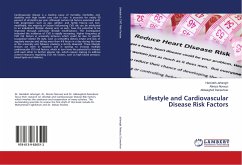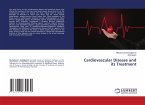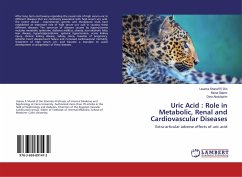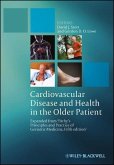Cardiovascular disease is a leading cause of mortality, morbidity, and disability with high health care cost in Iran. It accounts for nearly 50 percent of all deaths per year. Although certain risk factors associated with CVD progression-such as age, gender, and family history-are non-modifiable, the majority of factors influencing CVD risk can be attributed to an individual's lifestyle choices and, as such, have the potential to be improved through particular lifestyle modifications. The investigation indicated the incidence of CVD is rapidly increasing. Higher frequency of CVD risk factors in university lecturers which could be due to specific occupation-related life style, such as unhealthy dietary intake and lack of regularly exercise and sitting more than 4-8 hours in a day during the time at the university and Tobacco smoking is strictly observed. These lifestyle choices act both in isolation and in synergy to increase multiple cardiovascular (CV) risk factors, which in turn have the potential to interact with each other to further elevate risk, which require making to address control measures regarding CVD risk factors, such as high blood pressure, blood lipids and diabetes.
Bitte wählen Sie Ihr Anliegen aus.
Rechnungen
Retourenschein anfordern
Bestellstatus
Storno








